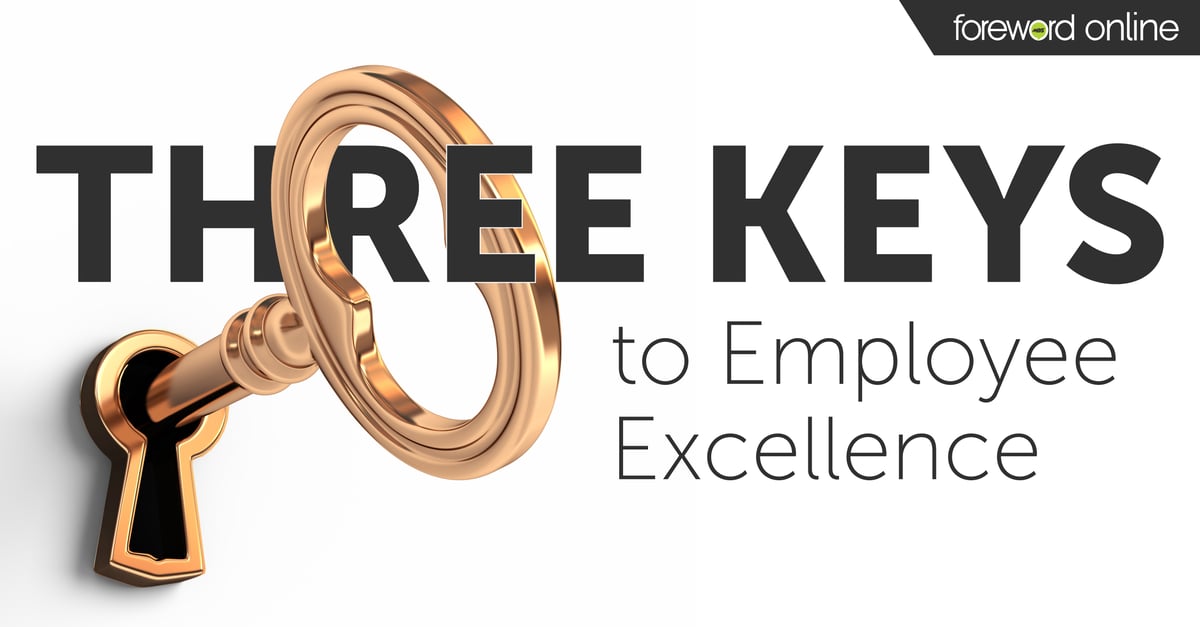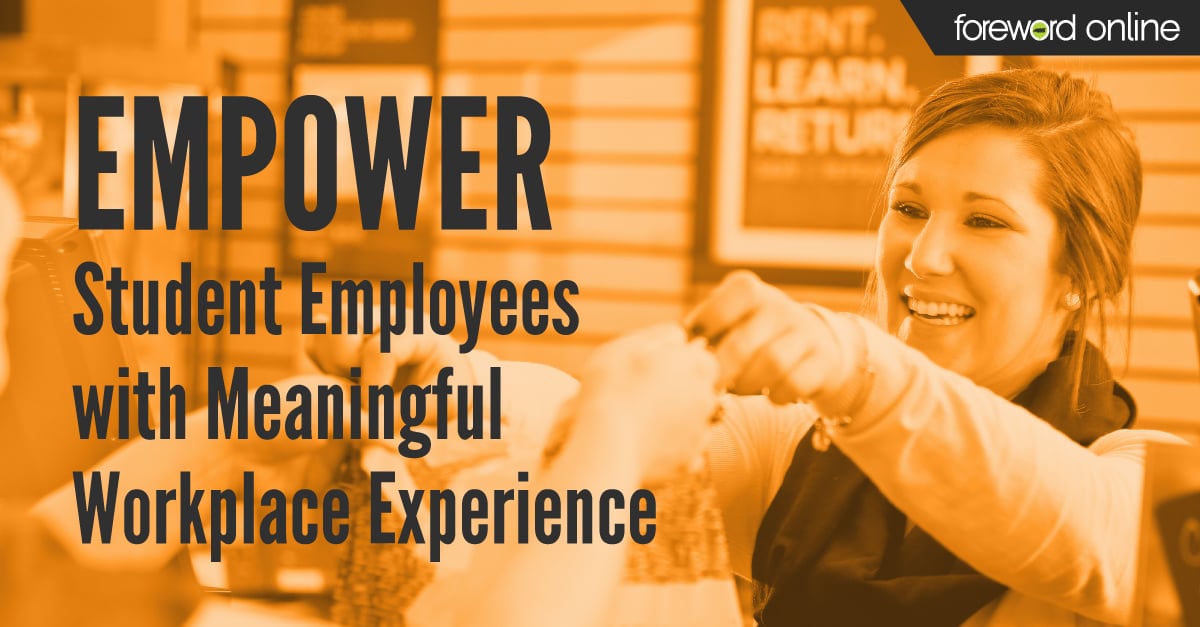Gas stations and big-box stores aren’t the first things that come to mind when you think of employee satisfaction. Yet, that’s something QuickTrip, Costco and Trader Joe’s have in common.
Each retailer made Glassdoor’s 2017 “Best Places to Work: Employee’s Choice” list. The companies emphasize three key elements in their culture: rigorous training, high standards and empowering employees to make critical decisions, according to the Harvard Business Review (HBR).
A happy workplace begets energized, effective employees, who, in turn, beget customer satisfaction and loyalty. As you know, employee excellence can be hard to achieve for college retailers, whose student associates often arrive with little workplace experience. What’s more, regular turnover can make time devoted to training seem like a wasted expense.
College stores’ highly varied, expensive and complex products make employee behavior all the more important. For students and families, course materials can be a hefty expense. A sales associate with little knowledge of the industry, little willingness to help customers with decision-making or little patience for sticker-shock can easily drive newcomers away. If your store is anything like many striving to be a campus destination, it sells high-ticket items like computers and tablets. Customers need guidance with technology purchases. Knowledgeable and enthusiastic associates will make more sales.
An associate who responds with a sullen shrug to questions like, “Why does this book cost so much?” or “How much memory does this laptop have?” not only ensures a customer never returns but prompts bad word-of-mouth on campus and on social media.
How do you prevent such a nightmare?
1. Invest in training
As a college teacher, I’ve encountered many a sullen shrug from new students who have yet to outgrow the notion that showing enthusiasm is “uncool.” Like other instructors, I include etiquette requirements on my syllabus and factor guidance in professional behavior into my pedagogy. In the early days, it seemed like I was teaching things that ought to be obvious to an 18-year-old: Don’t sleep in class, don’t text, don’t talk (or giggle) while other students are speaking. Do attend class, do participate, do take notes.
In time, I learned it’s not remotely condescending to make classroom rules explicit. Disrespectful behavior can be deadly in a professional environment. I want to give them tools for success and professionalism is among them.
College store managers have an even greater opportunity to mentor students. That can be a boon for the employee and for the store.
As a teacher who trains students in classroom culture, I emulate expert K-12 teachers and include highly specific actions in my verbal instructions. Thus, instead of saying something ambiguous like, Pay attention, I might say, I want to see you sitting up with your eyes on the speaker. Instead of Don’t text, I say, All devices are removed from the desk and put away in a bag right now. Instead of Take notes, I might say, I want to see your pen moving across a piece of notebook paper with a date at the top of the page. It may sound ridiculous, but it works — and engaged students experience more learning success.
Even if you can’t train every associate in the complexities of the textbook industry or the intricacies of your technology offerings, you can set aside time for making your expectations clear. In my experience, instructions like, I’m happy when I see associates standing up straight and smiling as they engage with customers will be more effective than something like Good customer service is essential. Students might only have vague ideas of what “good customer service means.” In your training, you can teach them exactly what you know it means.
As retailers like QuickTrip, Costco and Trader Joe’s show, investment in training not only engenders employee satisfaction, it helps the bottom line. Costco devotes 70% of its budget to labor. Founder Jim Sinegal told HBR that he wouldn’t dream of cutting back.
QuickTrip CEO Chet Cadieux said that in addition to training, his company has a rigorous hiring process. Extra time devoted to interviewing prospective associates could help weed out too-cool-for-school attitudes.
Nontraditional students — first-generation students, adults, veterans — often bring a refreshing approach to class. They’re not afraid to sit in the front row. They know why they’re in school and they’re usually thirsty for a challenge. Students like that make excellent employees, too.
2. Set high standards
It can seem counterintuitive, but demanding excellence from employees — even those who at first might be inclined to slack off — makes them happier. QuickTrip’s Cadieux told HBR he puts two corporate values at the fore: being the best and never being satisfied.
Such expectations could do wonders for student employees, challenging them to wake up to their potential. It took me time as a teacher to learn that ignoring student complaints about hard work was one of the best things I could do for them. It’s often the case that students are simply afraid of the unknown. If they haven’t done it before, they assume they can’t. When you demonstrate confidence that they can accomplish a new or difficult task, that confidence rubs off on them.
3. Empower employees to make key decisions
After all the talk about training with explicit instructions, it might seem like employees shouldn’t be given independence. In fact, the opposite is true. Costco meat manager Todd Miner — who was promoted from a starting position as a butcher — talked about the company as if it were his own business, according to HBR.
Finding ways to encourage your associates to feel like stakeholders will inevitably boost performance.
QuickTrip gives employees a Daily Activity Worksheet with specific tasks to accomplish at specific times. That makes expectations explicit. Meanwhile, the company also gives employees freedom to make critical customer service decisions. So, a cashier can follow her heart and give the kid who dropped his soda another one on the house. The combination of clear expectations and important freedoms ensures work gets done, employees feel a sense of efficacy and ownership — and customers are happy.
College stores have great challenges as retailers. Bringing focus to employee excellence — through training, setting high standards and facilitating employee independence — can do more than prevent customer service nightmares. It can put your student employees on track for a brighter, more meaningful professional future.





